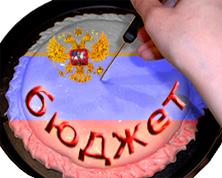
New autocratic Putin’s legitimacy objectively reduces the role of bureaucracy
MAXIM SHEMETOV / POOL / AFP
Often you can hear that in our country there is no political elite, as “what is elite”?
Politicians can say that narrow-minded approach is not appropriate and that the elite according to the functionalist definition, are those who is involved in the production of important system decisions. It is important, however, where the elite was originally taken and how it is reproduced.
As for reproduction, that is, without going into details, we can simplistically distinguish two poles: on one – the “elite” and the other “leading cadres”. The elite cannot be assigned, and the status of the head, on the contrary, is given and taken in conjunction with the post. Elites are grown and educated, often for many generations, and frames select and forge.
The Legacy Of Brezhnev
In the 1990s our political system has come a long way from Soviet personnel (nomenklatura) to hybrid with significant elements of the elite, and then the movement has gone in the opposite direction. Especially the big push back was made in the last couple of years, then hell elite system has become much less, and more personnel and the system rightfully can be called neonomenklatura (NNS). It is also important that if until recently the system was acting in the interests of the bureaucracy (Brezhnev version), now more in the interests of the leader (Stalin).
In NNS, as in the old nomenclature system (NS), no matter of property rights, it is de facto available to the system as a whole and not the individual that receives only the right to dispose of property – public or private, and the property can be redistributed in the interests of the system. Logon and logoff is difficult: not easy to get, but, getting and acting on the rules, a person is almost guaranteed to not worsen their situation regardless of the results.
The main thing required by the system, – the unconditional loyalty and perform all orders of the higher management. In Soviet times it was collective leadership, in our more personalized vertical of power, focused on the person of the President. In the case of strict implementation of the internal rules the person receives relief in respect of the regulations on foreign – including immunity from prosecution for many crimes. In relation to the expelled from Paradise item works formula the rest of the law.”
Benefits and privileges, both official and not, including the right to corrupt rents, is an integral part of the national Assembly, a mechanism to ensure loyalty to the system and their superiors. Them, including different kinds of allowances, bonuses, machine-specific immunity can be denied completely or partially, in violation of the rules of the game.It is the formation and strengthening of NNS explains the many features of our political development.
So, with the election not specified in advance, the result is contrary to the principles of unity of command and subordination. For a nomenclature system they are unnatural, therefore the stronger the system, the weaker the election. Still relatively fair elections NNS may allow, but not fair, in the best case model of the current Governor. Federalism is incompatible with the hierarchy and centralism, and therefore were basically just in the name of the country.
All is good, but largely rebuilt anew system did not have mechanism of reproduction, which is a classic of the national Assembly consisted of two functional units: 1) recruitment and 2) cleaning of existing ones. Cleaning in the NA – it is not the excess, and systemic mechanism, which, until recently, NNS have been deprived.
Existing bureaucracy, of course, does not want neither one nor the other strongly resists attempts to implement them. It was clearly visible when you try to start the system of personnel reserve: if at the top something worked “for themselves”, already in the regions and departments no – it’s “against him”. However, the new autocratic Putin’s legitimacy objectively reduces the role of the bureaucracy, turning it into more instrumental.
The KGB hook
Built in recent years, HHC was very similar to Stalin, but takes into account the new quasi-market realities. It was built mostly according to the old patterns, but from a different angle – KGB, not the organization Department of the party apparatus, as before. With sophisticated control practices, but without mass screening and training, with a less formal institutionalization and a lack of collective leadership. But on one control does not go far. Especially in a situation when the usual system modus vivendi with the growing redistribution of natural resource rents has exhausted itself and the system somehow will go in motion. Today, the system is not able to reproduce itself and is largely is a one-time – requires large-scale transformation change of leader.
The old NA had two strategic vertical: the KGB and the party. The party that is involved in the selection and training for the NA in General. These deals and KGB, the subjugation of the party, but in its specific key initsiativniki because there is no love. Four new acting governors can serve as a good illustration. Three of them are Kaliningrad, Yaroslavl and Kirov – products of the KGB, vertical, single – Sevastopol – party. He initsiativniki, even during the presidential envoy Kiriyenko, when held open competitions for the positions of chief Federal inspectors. However, there is no doubt that with him already there and someone from the KGB.
As the current system may be trying to solve the personnel problems? To expand the practice of creating farm teams like onf or ASI for preparation / demonstration of promising personnel; to use the same purpose of primaries “United Russia” and the new Deputy corps; to expand the practice of personnel landing very close to the ruling elite corporations such as the FSB and FSO; use of clientelle Sergei Chemezov, Sergei Shoigu, and perhaps other figures in the middle of Putin’s circle, whose influence is growing. In fact, we see it in a series of assignments 2016
Of the 13 serious appointments 2014 in 12 cases, was appointed as external to the structure / Corporation people, and only in one case (Oleg Savelyev to the post of Minister of the Crimea) the appointment can be considered intragovernmental. The appointees to the presidential administration (PA) came from Internal troops (Sergey Malikov, Nikolai Rogozhkin), FSO (Alexander Kolpakov) and the Ministry of defense (Nikolay Abroskin, Oleg Belavenets) and the government of Rostec and structures associated with it (Alexey Aleshin, Konstantin Busygin, Oleg Safonov), FSO (Victor gold), accounting chamber (Igor Vasiliev), the Ministry of agriculture Ilya Shestakov), governors (Leo Kuznetsov).
Of the 18 important appointments 2015 external and internal were in equal proportions. Thus of the four external appointees in the government, two came from SF (Lyubov Glebova) and GD (Sergey Barinov), one from the Federal security service Oleg Syromolotov) and one of the governors (Alexander Tkachev). The interior appointments practiced in AP, the FSB and the corporations controlled by the government.
14 key assignments Jan – July 2016 the proportion of 50:50 preserved: the seven appointees can be considered internal, seven external. The role of a personnel reserve for external appointments in addition to AP (Anton Ustinov, Vladimir Bulavin, Sergey Melikov) played “assistance” – Ministry of industry and trade (Dmitry Ovsyannikov), “Norilsk Nickel” (Dmitry Pristanskov), Sberbank Sergey Gorkov). It is interesting that almost half of the external appointees, 2014 from the security forces or left, as Rogozhkin, or, Melikov, Belavenets, gold, Vasiliev, changed the place or even the job profile. In their case it’s more of a personnel combinations and multiple passes than the effect of rejection.
Strategic risks
If the system is not opening and using only internal resources, like Munchausen, pulling himself out of the quagmire? The process went quite active and seemingly without serious incidents. It shows that the Kremlin understands the growing risks and trying to play their decline. Looks like we are seeing today is not just a disparate, reactive, personnel changes, and quite logical and consistent strategy, no matter it is deployed according to the original plan or ad hoc, but in the conditions, when power lines still guide the individual filings necessary for the system.
In 2014 with the active participation of security forces and law enforcement officers has undergone extensive personnel changes in a number of government agencies and offices: the RTN, Rosgranitsa, the Federal Agency for fishery, the Federal tourism Agency, the Rosreestr. This is partly a redistribution of control over significant financial flows. In last year’s reshuffle under pressure in all sorts of government agencies and funds continued, but it is the turn of state – owned companies Russian Railways, RusHydro, Rosenergoatom.
This year, which is still far from over, serious personnel turbulence affected not only Vnesheconombank and the Federal customs service, where he was sent to external managers, but the entire power unit. The defense Ministry, the FSB, the Prosecutor General and the TFR has been a turnaround in the manual when you save chapters; GRU, FSO and SBP changed Chapter; the Federal drug control service and the FMS eliminated as a separate structure; the interior Ministry in addition to progress in leadership has occurred and significant changes in composition / structure.
What to expect next? Are we at the end or in the beginning of cadre restructuring? In the same logic system rebuilt with the new realities, first and foremost, changes in the economy associated with the crisis. This logic has already produced large-scale Stripping, redistributed flows, discounted at the time of corruption rents and cut some additional financial resources. Then stripped those who cleaned and partly restored the balance in a composite power unit.
Further aftershocks will still be some time to continue – for the basis of their experience and superstructure in the face of political and hardware areas, but kakocracy like April – July will be no more. There is, however, another logic, according to which the meaning of replacements not to fix a new equilibrium, but rather in creating a springboard for more ambitious changes.
As implemented today the human resources strategy effective? Static – Yes, as a variant of the gain control system of mixing cards in new ways, weakening all players, except the main, and risk reduction, their autonomy and the more concerted action. In dynamics, however, is a new design with very tight connections and high center of gravity can not be effective. It does not matter where the system will move towards the liberal political and economic reforms or, on the contrary, tightening the screws and building the mobilization of the economy.
The increasing centralization of management and industrial corporations, and regions, considered as subdivisions of a Corporation in crisis and the exit from the crisis carries big risks, mostly associated with decision-making and their implementation. With the financial weakening of the center is growing objective need for decentralization. And the more successful attempts to resist her look today, the big problem is waiting for the system tomorrow.
Implemented the option of external control – how hard towing at the same time a few tens of regions and corporations. If the regions it takes a long time, it is still a problem of inability to manage everything at the same time from a single center mitigated the increasing autonomy of corporations. Now, centralization, and regional and corporate planes, and a General reduction in flexibility of system design, reduces its adaptability to the changing external environment and ability to move.
the author – Nikolay Petrov ……….








